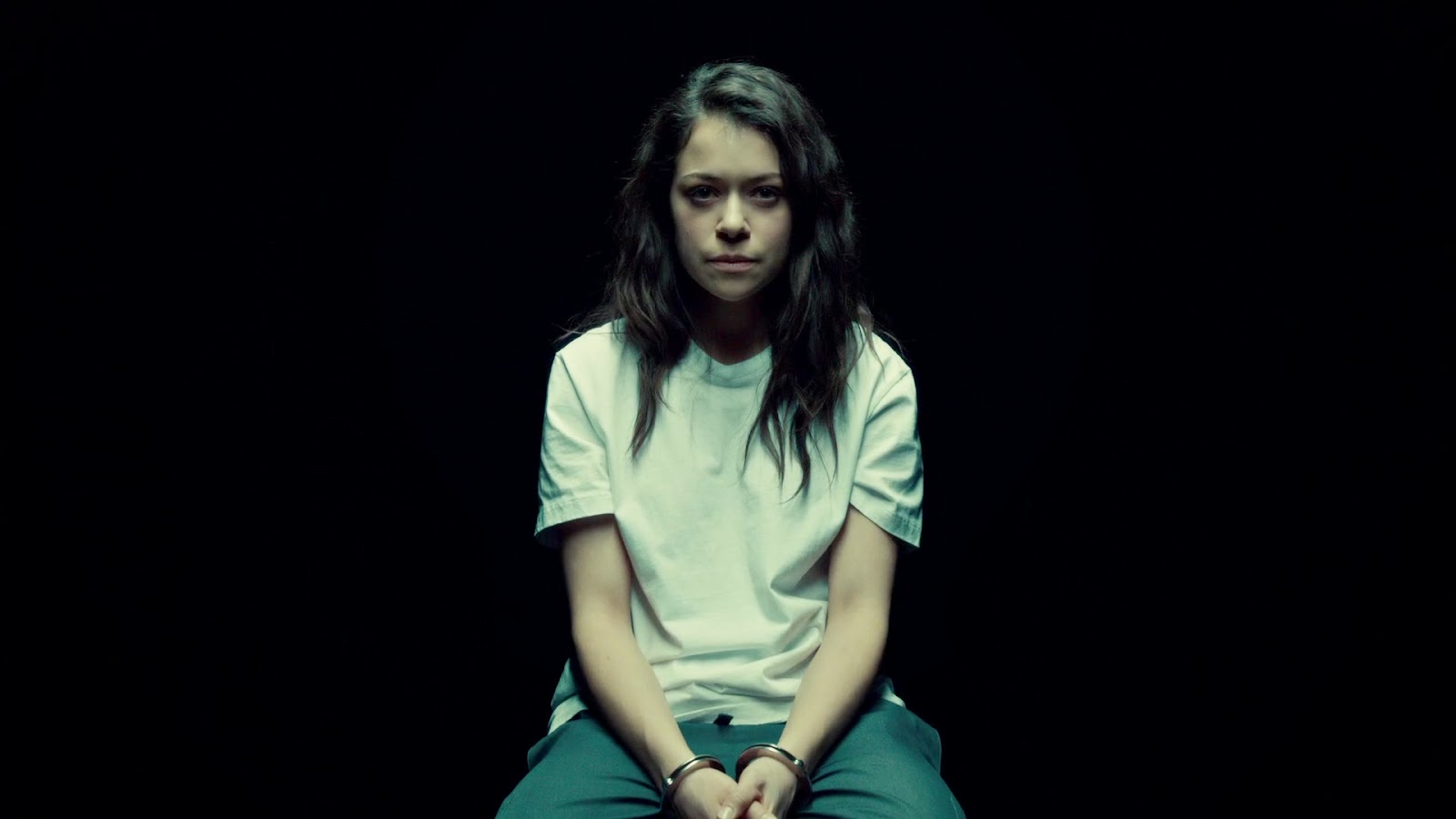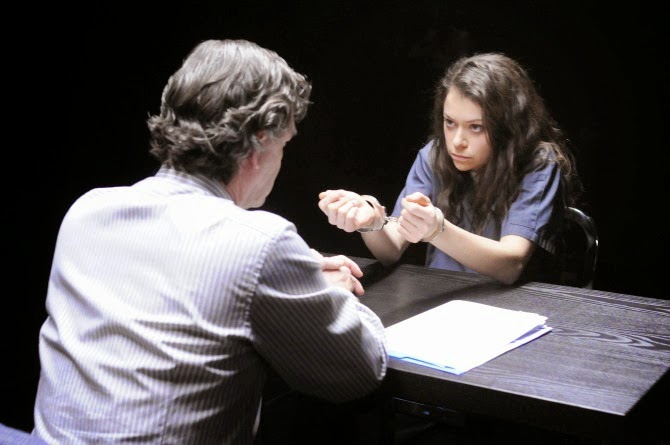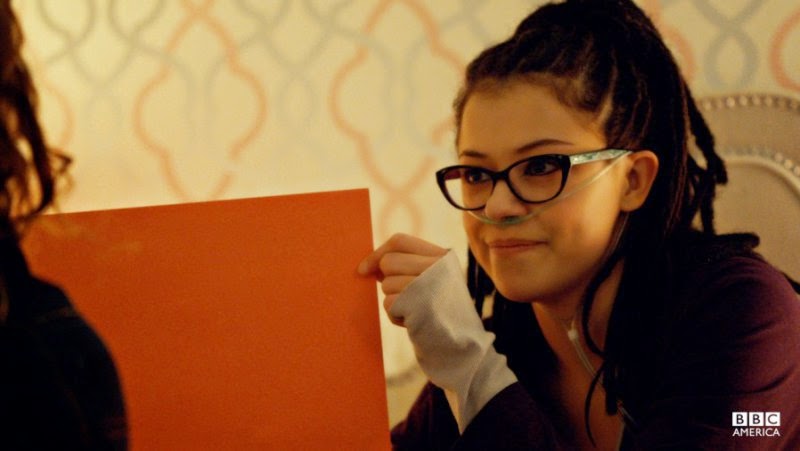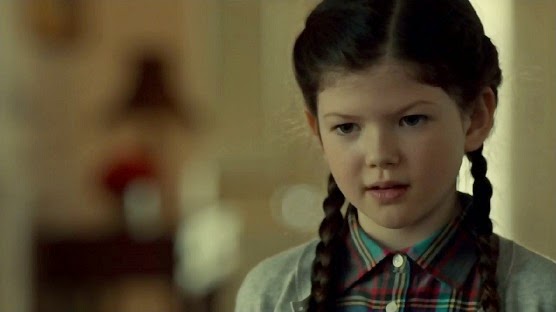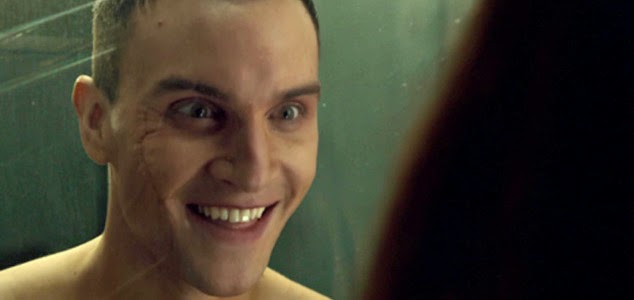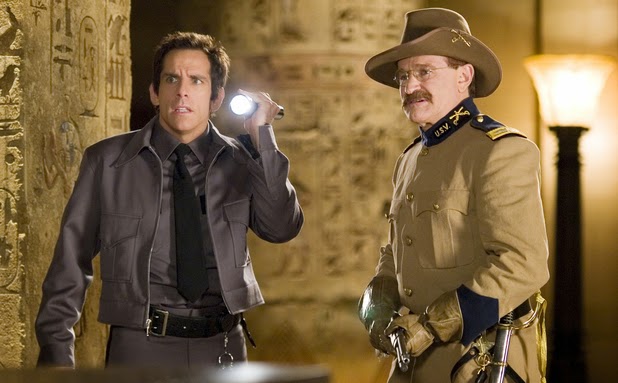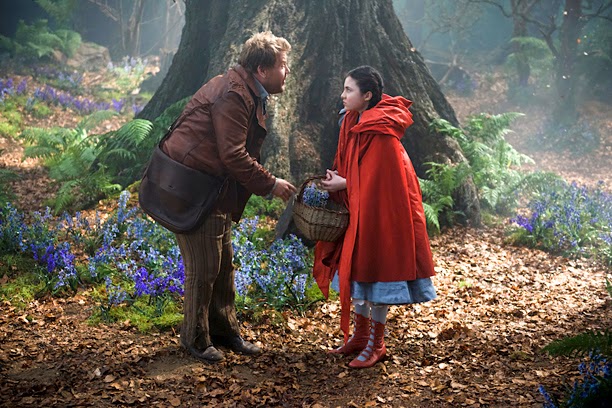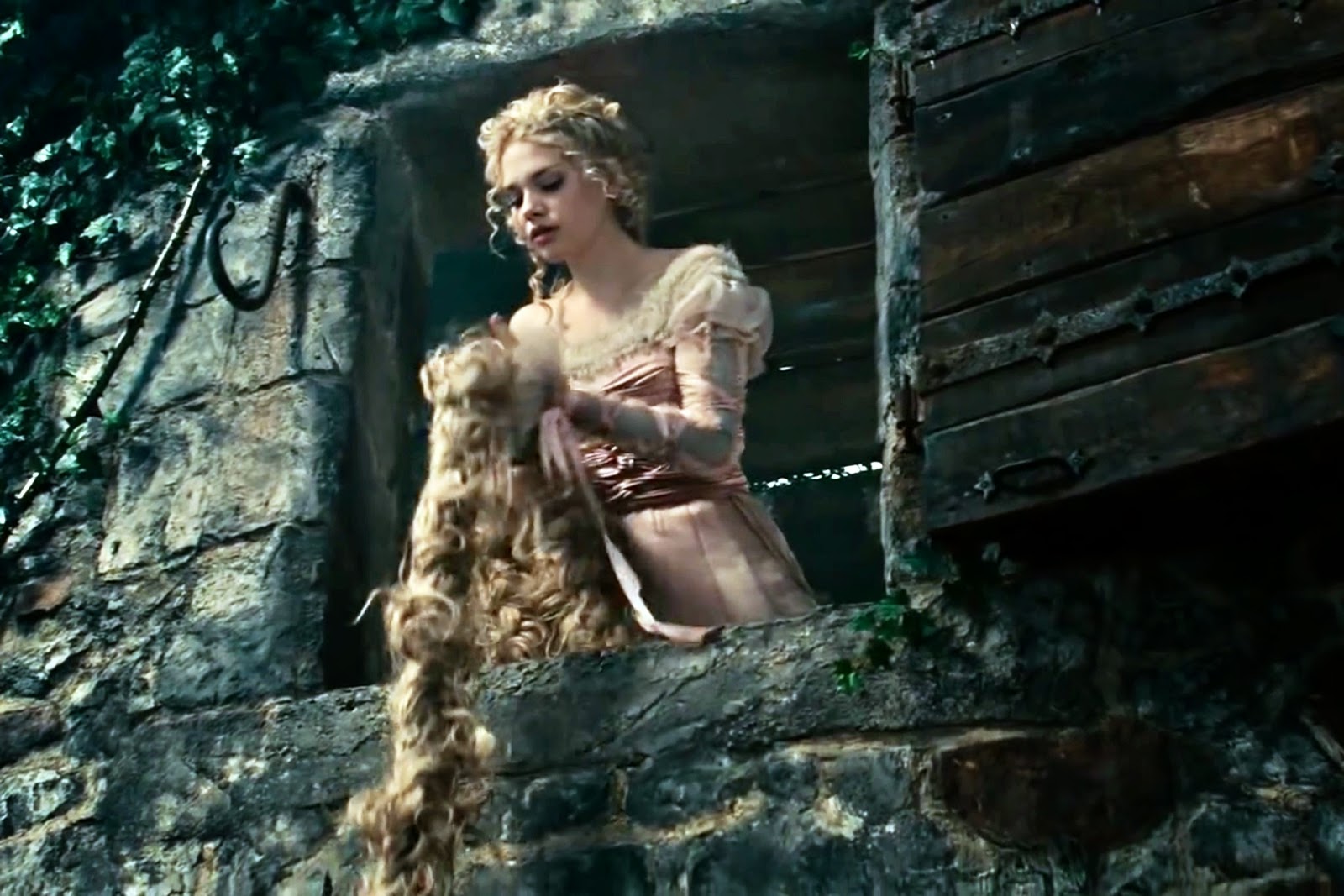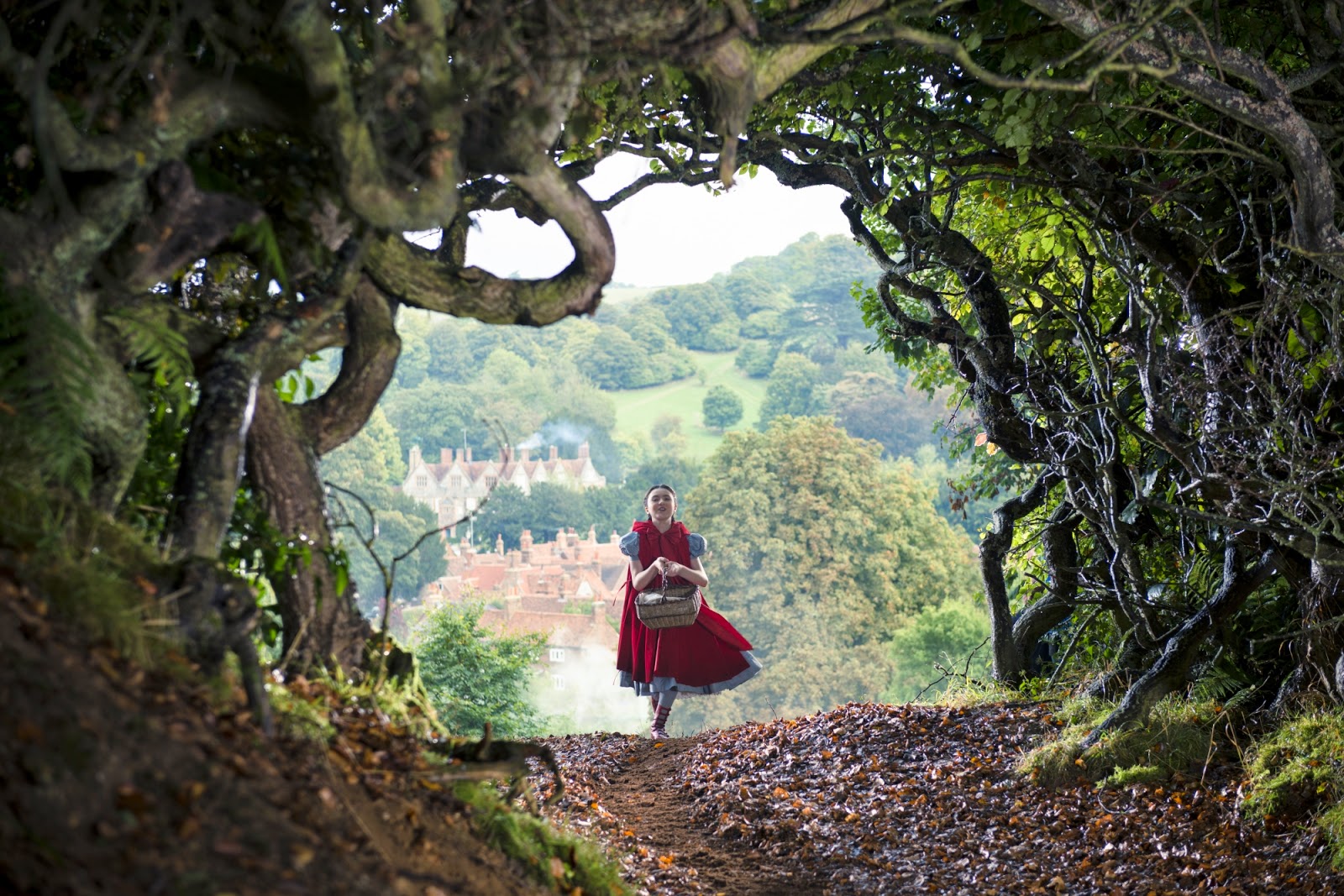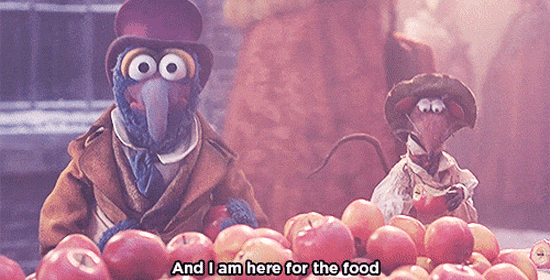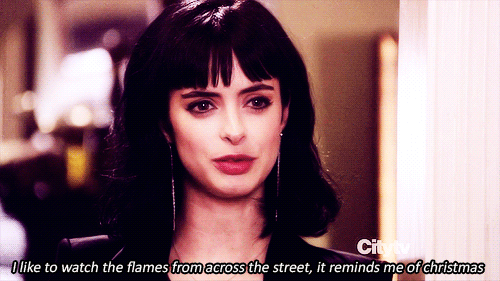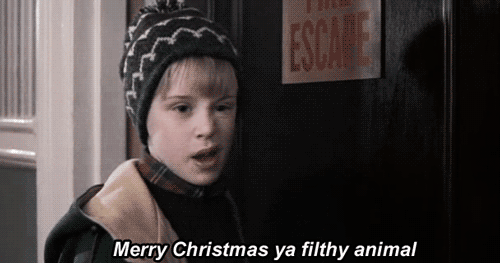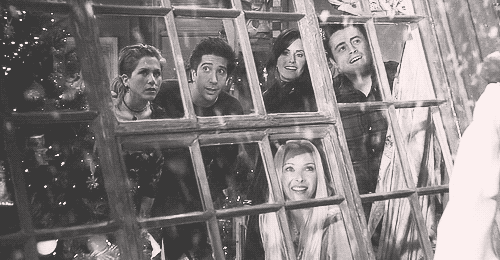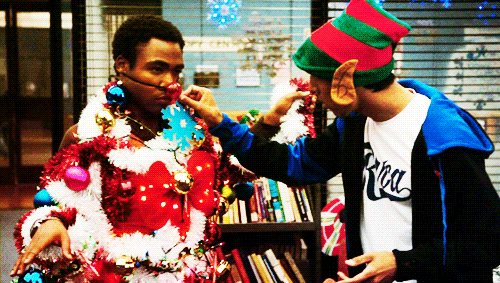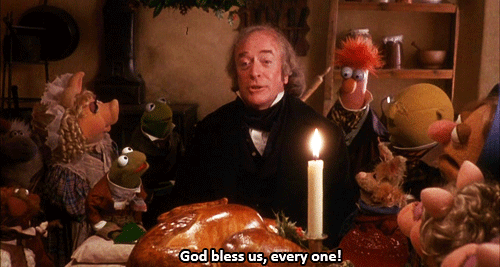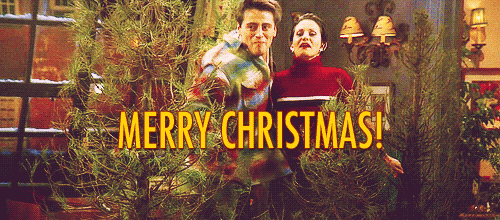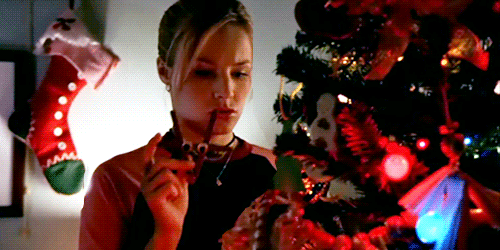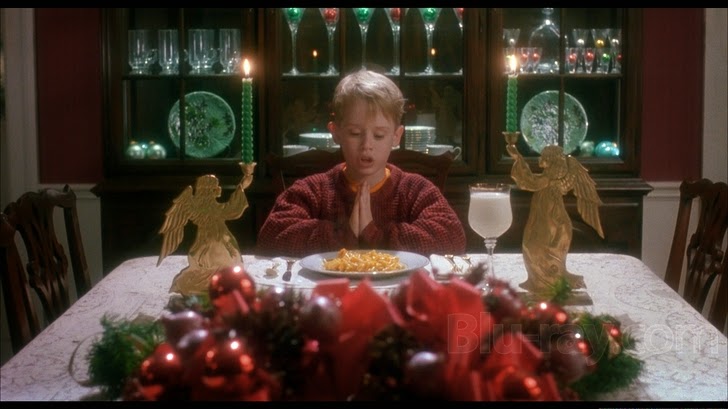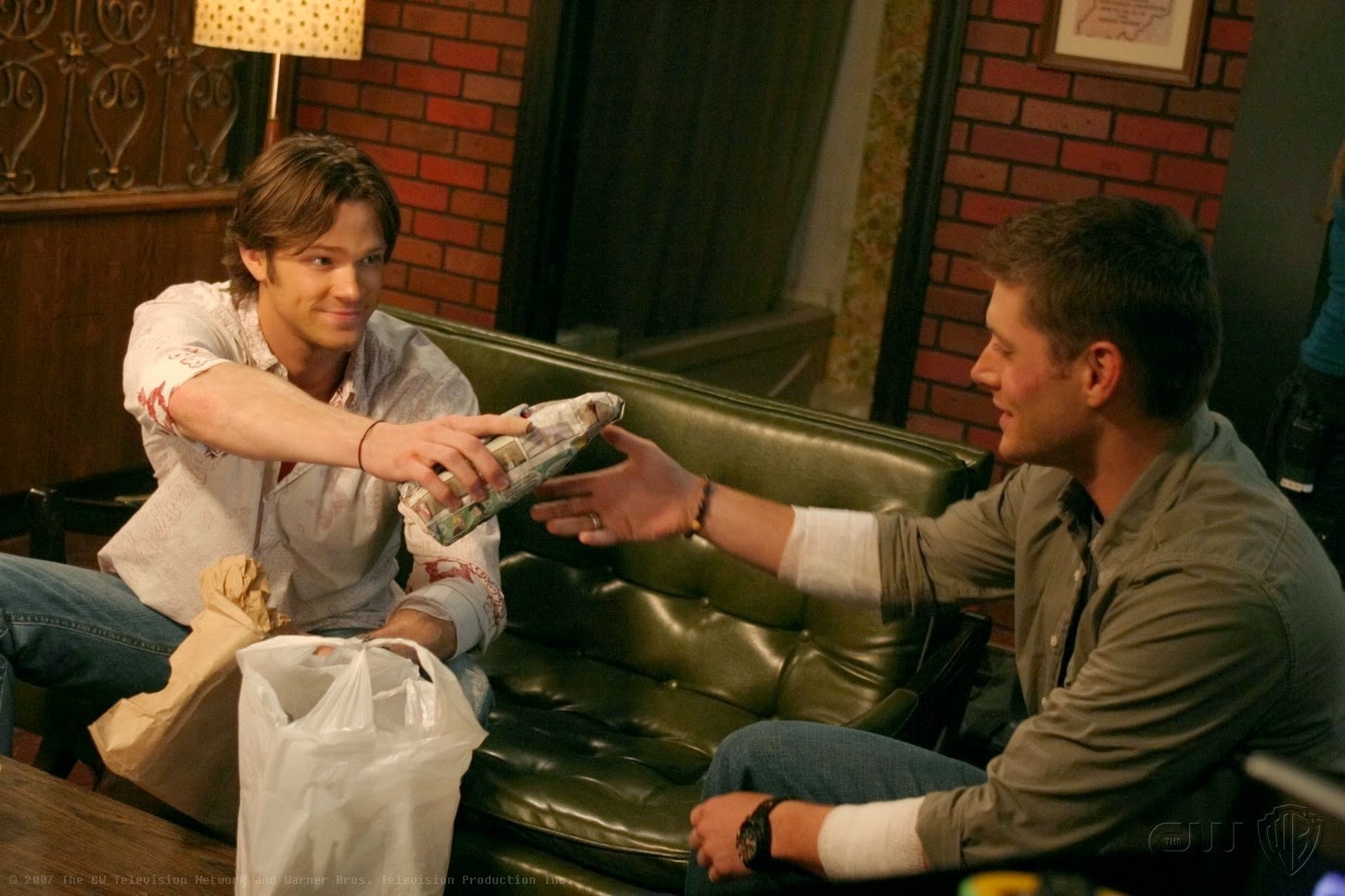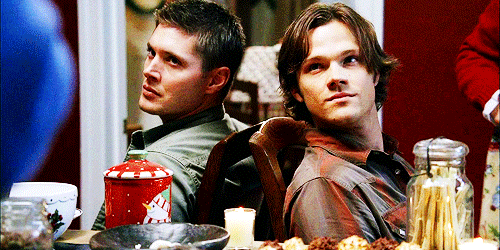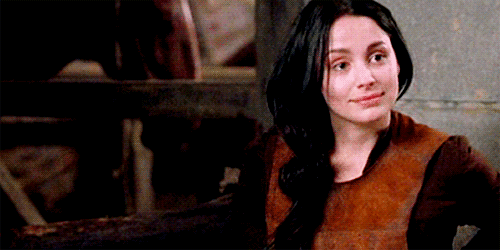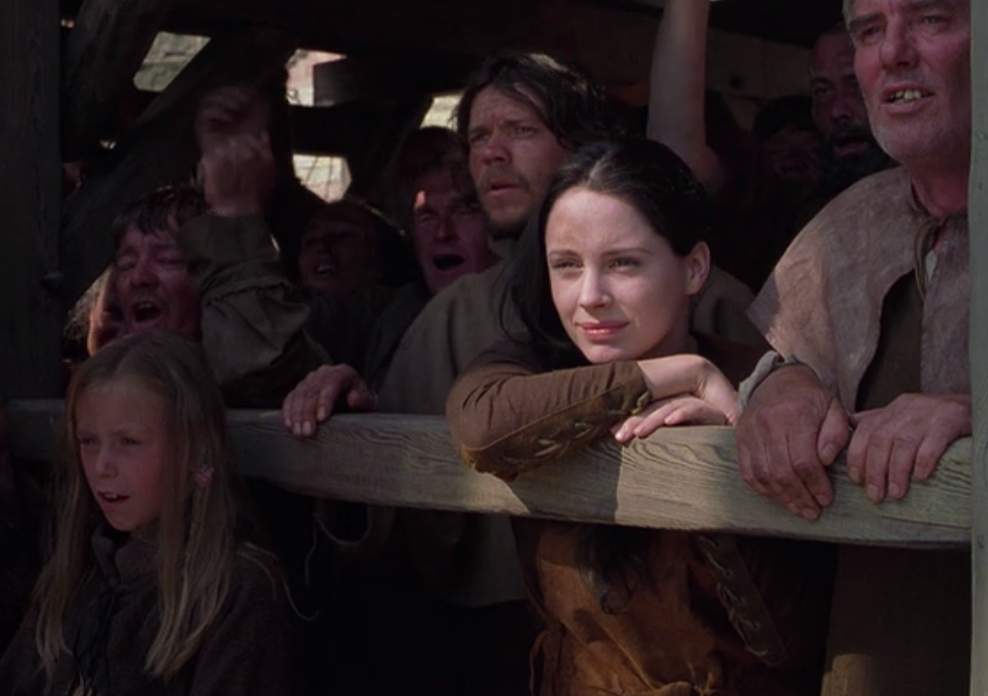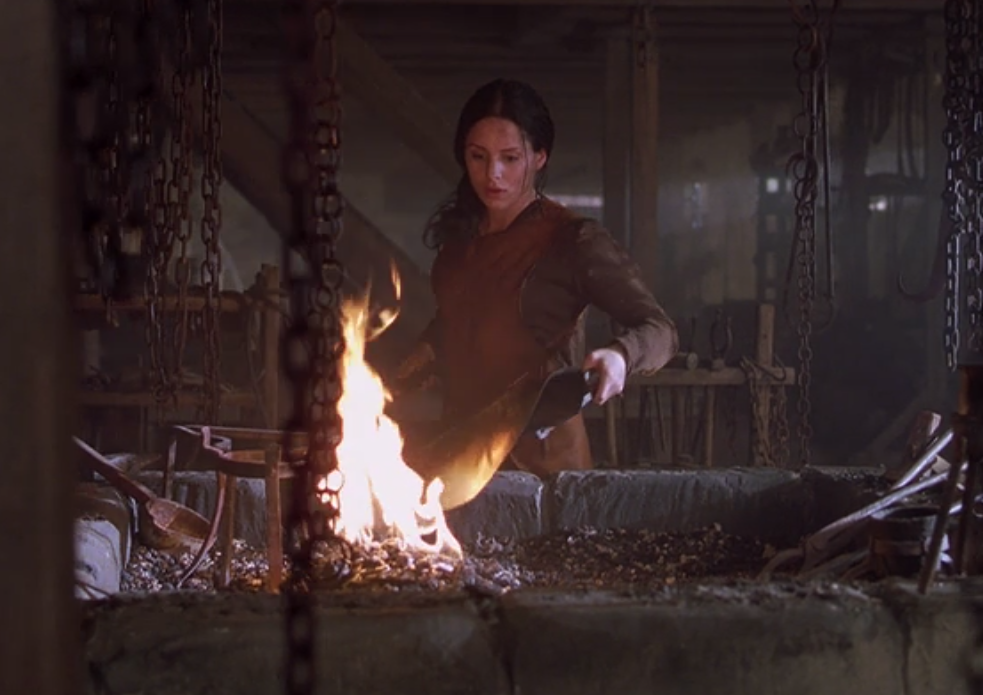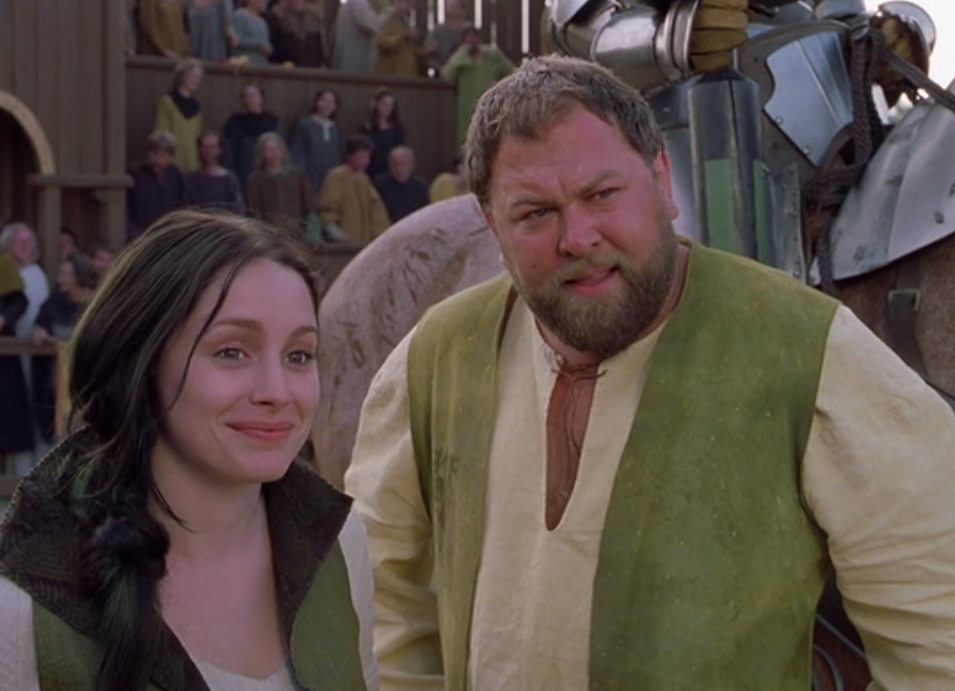I had a lot of thoughts about the most appropriate way to finish off my year on this blog. Should I do a best of? Should I talk about my favorites and least favorites from the year and ponder the future of media? Or should I just freaking finish recapping season two of Orphan Black once and for all?
In case you couldn't tell, I went with the last one.
Orphan Black is one of my absolute favorite shows to watch, but it's a pain in the butt to recap. Not because there's anything bad in here, but because there's so much good stuff that it takes me absolutely forever to get through it all. That's why it's been so long for me to get to recapping this final episode. Not because I was dreading it, but because I didn't feel like I had enough time to really do it justice. And now I have run out of time, so we're just gonna go with it.
But also, I have to admit, Orphan Black really is emblematic of the year for me. It's a show that's not without its flaws, but that tackles incredibly hard questions about life and consent and who owns your body. It tries. And whether or not the science or patent law is always accurate is much less the point than that this show tries to tell a story about the people who don't have the power, the people who get stomped on, fighting back.
What's more symbolic of this year than that?
When we last watched the show, back in September (ugh), we were on episode nine, and stuff was going down. Donnie and Alison were united in getting rid of Aldous Leekie's body, and discovered that hiding a body was exactly the spark their marriage needed in order to rekindle.
Sarah made the tough decision to take Kira in to the hospital and allow the DYAD Institute to harvest some of her stem cells in order to create a cure to save Cosima. But of course Rachel took advantage and used it as a distraction to snatch Kira and hide her away in one of DYAD's weird little rooms.
And up in the frozen north, Helen decided she was done being the Proletheans' brood mare and took her bloody revenge on Henrik, while giving Mark and Gracie time to escape. So, you know, nothing much happened.
We come in for the season finale on Sarah being interrogated while doctors poke and prod her and take vials of blood and hair samples. In the flashes back to right after Kira was kidnapped we find Sarah and Mrs. S freaking out at each other while they realize that DYAD has Kira, but Felix has also been poisoned with something. Sarah takes off and decides to give herself up unconditionally to DYAD in order to bargain for Kira's life.
Sarah's interrogation also includes incredibly probing questions about her sexual history and reproductive capabilities, questions that remind us very starkly of the power differential at play here. Sarah's life is laid bare before her captors, because she has nothing else to bargain. It's honestly terrifying.
In another part of the facility, Kira submits sullenly to a DNA test via cotton swab, and takes the opportunity to pinch the doctor's phone. It's unclear who she calls with it, but we know that a man answers - so, Paul or Cal?
And Cosima and Scott rage as their lab materials are systematically taken away. Including, as it seems, Delphine, who Rachel is having transferred to Germany immediately. She is to have no more contact with Cosima or any of the clones, probably on threat of being killed. Delphine barely has time to send Cosima a goodbye text before she's hustled onto the plane.
The goodbye text contains a lot more than platitudes, though. It has a copy of Rachel's itinerary attached to it, and that means that Cosima and Scott know exactly where Rachel is going to be, and where Sarah will be. Plus, they don't have access to Sarah, but they can talk to Kira. A plan is starting to come together.
For Sarah the stakes are finally becoming clear. It's always been unusual that she was the only one of the clones able to reproduce (except, as we now know, Helena), but now it becomes clear that Sarah's reproductive capabilities have been the aim all along. If she wants to see Kira again, she will have to agree to let DYAD harvest her eggs when she next ovulates. And, presumably, if she wants to keep seeing Kira she's going to have to keep letting them harvest from her.
The scene is starkly reminiscent of the stories we hear bout sterilization programs in prisons across the US, where doctors targeted low income women of color and women with mental disabilities for forced sterilization without their consent or even knowledge.
In other words, this storyline (intentionally, I think) reminds me of all the ways in which reproductive rights have been controlled by those in power, by the elite, and how those choices affect the bodies and personhood of lower income women. Rachel, as a member of the elite, can choose to have Sarah's eggs harvested because she has the power in this scenario. And it's alarmingly true to life.
Incidentally, Sarah does sign the papers.
They take her to see Kira, and it's not quite what Sarah expected. Because when they say "see Kira" what they actually meant was that Sarah was just allowed to see her. No interaction. She watches Kira from behind a two way mirror, and has no ability to contact her. And all the while she has to watch Rachel swan in and play mommy.
Fortunately, right after this really depressing scene, we get to overhear one of the best conversations Mrs. S has ever had. It's quickly cut off when Felix comes into the room, but S definitely says, "If I say you are making a car bomb, you will bloody well make a car bomb." And that's just awesome.
But before Felix can press her for information, there's a knock on the door, and Mrs. S and her gun go out to greet...Cal! Apparently that's who Kira called, which makes sense. We did see a scene where he made her memorize his cell number. He has a picture Kira drew and it seems that he's the only person in this whole show to have put all the pieces together. Without being told, he knows that Sarah and her "sisters" are genetic identicals, and that Sarah is on the run from some shady science group. Except that she's not on the run anymore.
Oh, and just to make things more complicated and interesting, Felix gets a call from Art - seems Helena's back in town. She broke into Art's apartment, and now she's eating all of his food. She demands to see Sarah, and S sends Felix over there to figure out what's going on. Also to make sure that Helena doesn't find out where Sarah is and therefore prevent a bloody streak of vengeance wreaking through downtown Toronto. Cal's face during this entire exchange is priceless.
At least Helena's always around to cheer me up. Her version of the events of the last three episodes as explained to Felix and Art make very little sense when compared with what we actually saw her do, but it's certainly entertaining to hear. And at the point Art and Felix have a lot of experience reading through the Helena lines - they can tell what's bullsht and what's true. Like, yes, she did burn down the Proletheans' ranch. No, her boyfriend probably didn't have to go to war.
And, yes, she did room with a good girl who suffered a crisis of faith. Which cuts us to Gracie and Mark, on the run and figuring out what to do with themselves now that their whole lives are gone. But at least they're together - all of them, even the baby.
Back at the house, Cal is explaining what he dug up on DYAD. He managed to hack the hell out of them, discovering how far their tentacles run - influencing senators and judges and everyone who could possibly have a hand in changing biogenetic patenting law. But he also found a source. Someone high up at DYAD, with Project Leda, who can feed him real, concrete information. This person knows that Kira and Sarah are in the Institute and they might be able to help.
Interestingly, Mrs. S tells Cal to mention that he's with her, with "Siobhan Sadler" when he replies to the mystery source, and the mystery source responds by telling him to ask S about "Castor". And then she gives Cal a mythology lesson.
From the way that Mrs. S and Paul talk, it's clear that she's known his backstory a lot longer than we have, and that she was completely in earnest about wanting to add him to her collection of sources back when they spoke outside Duncan's house. Something is afoot.
At DYAD, Duncan takes a turn in Rachel's creepy room of screens and watches those old home videos of Rachel as a child. Rachel's using those videos to emotionally manipulate Duncan into giving her what she wants: the keys to the ciphers he wrote, encrypting their genetic sequence. He refuses, unless she cures Cosima, and she counters that if he gives her the codes, she'll think about curing Cosima.
Also she offers him tea, but he declines because he's just British enough to have brought his own bag from home. Such British.
Anyway, Duncan isn't budging, but neither is Rachel. She's utterly determined, and utterly infuriated when Duncan tells her that he thinks giving her the codes would be unethical because he doesn't know what she'd do with them. And, in a way, I can see her point. Here she is being refused her own medical information by a man with no real vested interest in it "for her own good". On the other hand, Rachel is terrifying and I definitely don't want her to know how to make more clones, so right on Duncan.
And he asks her, heartbreakingly, if she can remember how much they loved her. Her response? "The reason I watch these tapes is because I cannot remember. At all." Which is just devastating, for Duncan and for us. I mean, imagine being Rachel. Imagine having yourself so stripped away that you cannot remember the feeling of having been loved. It's terrifying.
Back in that parking garage, Mrs. S and Paul discuss the terms of their deal. He'll help get Sarah out, and in return, Mrs. S will hold up her end of the bargain, whatever it is. It doesn't sound pretty. A limo pulls in and out pops Cal. He's made contact with his mysterious source, and they're willing to talk. Paul gets into the car with said source and the camera turns around to reveal it's...Marion Bowles from a few episodes ago. The woman who ordered Aldous Leekie's firing, and the one who outranks Rachel, working for another company possibly. Curiouser and curiouser.
In return for Marion getting Sarah and Kira out of DYAD, Paul hands over a file full of documents on what must be Castor. We don't yet know what that is, but I have suspicions. None of them nice.
Cosima finally gets her time with Kira, and it's heartbreakingly adorable. Kira's not enthused about her new dolls, but she is happy to have a quick little science class with her favorite aunt. Cosima teaches Kira about force and acceleration by having her push pencils through a piece of paper, and it's all very cute, except it's also intercut with scenes of Cosima and Scott making some kind of ad-hoc machine in the lab. I have no doubt this will come up again later.
And as we go back to Cosima in the lab, it becomes clear that she's only gotten worse as time goes on. She's collapsing now, her lungs not holding enough air to help her stay standing. Scott's worries, as he should be. He wants to take over the rest of the project, but Cosima is determined to see it through. It's personal, whatever it is. But she let's Scott take the last part of the mission, which involves a key card and apparently a lot of personal risk.
Sarah is awoken in her cell to a bunch of medical guards and a gurney, so probably not a good thing. I can only imagine that Rachel's not feeling all that stable right now. Who knows what she has planned.
At least Scott is there. He whispers to Sarah that Cosima says hey and they're going to get her out of there. But he doesn't have much time to chat before Rachel swans in and clears the room so that she can talk to her "sister." Rachel shows Sarah a picture that Kira drew for her - a picture that interestingly includes an image of a fire extinguisher for no reason - and then shows her the bone marrow they took from Kira to cure Cosima.
Rachel is sure that even though Duncan is dead, he left a copy of his cipher somewhere, and she's positive that Sarah has it. Sarah, meanwhile, has no idea what Rachel is talking about. So Rachel smashes Kira's bone marrow samples, thus destroying their best chance to cure Cosima out of petty rage. A temper tantrum. Yikes.
Oh, and out of the corner of Sarah's eye she can see a fire extinguisher that has a note on it saying "SQUEEZE". That's not suspicious at all.
As Rachel storms off to leave Sarah to her fate, Sarah calls her back and pretends she's going to give over the codes. Instead, she squeezes the fire extinguisher handle and a pencil flies out, hitting Rachel directly in the eye. As Rachel writhes on the floor in really gross agony, Scott rushes back in and gives Sarah the keycard, telling her to run. So that's what the plan was. Huh. Weird plan.
Sarah races to Kira's room, only to find Marion Bowles already there, bundling Kira up in a jacket and explaining that she was just about to come get her. Sarah and Kira are free to go, and Cal is waiting downstairs with a car. But. If Sarah wants to know what this is really all about, then she'll meet Marion tomorrow and find out the truth. And we all know that's an offer that Sarah really can't refuse.
Then Cosima puts on some music, and they dance. All of them, all in their own ways. All together, all dancing to the same song, and man is the metaphor heavy here. But it's also wonderful to see them all together and happy for once. Even if it is probably Cosima's last dance.
We fade into the morning after, with everyone sleeping scattered throughout Felix's loft. Sarah and Cosima are lying quietly in the bed, knowing that they might be having one of their very last conversations. Sarah is sad, but accepting. Cosima tells her that she's strong, she's the wild type, she propagates against all odds. And while Sarah doesn't want to do this without Cosima, she will and she can. They'll be okay, even if they'll miss each other terribly.
While they talk and cry, Helena slips out (after taking some liquid nitrogen out of her backpack, and isn't that terrifying). She pulls out Jesse's hat, Jesse from the bar and the barfight, the guy that Helena's sure she's in love with and very well might be in love with her too. As she fingers it, we understand implicitly that she's going to track him down now.
But she never gets the chance. Two men in normal street clothes pull a bag over her head and hustle Helena out into a waiting van. All that's left is Jesse's hat, abandoned in the hall.
Because of course they made more clones.
Charlotte is eight, the same age as Kira (which is what made me feel weird about Kira because she doesn't talk like an eight year old at all), and thinks of Kira as her cousin. Technically, Kira is her niece, but semantics. Sarah's just baffled by it all.
Cosima finishes reading the book Kira brought, and so Kira pulls out another one to read. But this one is different. It's a copy of The Island of Dr. Moreau, which I still maintain is a weird thing to read to a child, and it's the copy Duncan gave to Kira right before he left. What do you know. It's got pages and pages full of the cipher Duncan wrote, keys to their genome, and every piece of information Cosima could hope to know. Naturally Duncan gave it to the little girl.
Sarah wants to know if Marion is Charlotte's monitor, but Marion insists she's something else. "I'm her mother." Like Mrs. S, Marion is deeply invested in the health and safety of the clones, because Charlotte was a miracle, the only survivor of the later trials. Marion is counting on Sarah's fierceness to protect her and her daughter, because what she's got next is even more terrifying.
Marion's company is named Topside, and it's not a company so much as a cabal. They steer and guide multi-nationals like DYAD, hoping to shape the future of bioethics and bioengineering. And not just for profit. They firmly believe that there are other groups seeking the same thing, and they really want to make sure they get there first.
The evidence Marion has for this was confirmed by Mrs. S, and presumably Paul. It's Project Castor. And it's military.
Project Leda wasn't exactly shut down by the military, it was shunted into two separate programs. DYAD got the female clones and carried them to term, while the military kept the male clones and carried them. Marion takes Sarah down to the basement and shows her Project Castor. And, what's stranger, Sarah knows him.
Then we cut to the military leading Helena onto a plane while Paul and Mrs. S watch. Mrs. S knows that Sarah will never forgive her, but this is the deal she struck in order to save Kira. And she will live with that.
We cut again to Mark and Gracie getting married in an empty sanctuary. And then again to a soldier leading Helena in who has Mark's face. And back to Marion's basement where the man in the cage turns around and it's Mark's face again.
Male clones. Huh. End of season.
I have to say that this episode, the ending at least, gets me really excited about what's to come in the next season and where the story can go from here. We've spent now two seasons dealing with Sarah and the other female clones' issues of bodily autonomy, but for now that's not our main concern. Or rather, that is our main concern, but it's less immediately threatening for most of them. Alison and Donnie can live their safe suburban life in relative peace. Cosima's probably not going to die, and now she has a code to unlocking their genome. Sarah has her daughter back and a generous patron.
Helena is in a terrible spot, it's true, but compared to the end of last season, everyone's doing pretty well, actually. It's time to widen the world a bit, time to examine other issues and topics and time to expand our issues of identity and consent. Bring in the boys, I say! Mark's been a really fascinating character already this season, and I look forward to how his story will develop, especially in light of him now being married to a woman carrying a clone's child.
This whole season has been about ownership - who owns the clone's bodies, and who controls them. Who controls the rights to their medical care, and who controls the rights to their physical bodies and derivatives. So many of the storylines this season have been about consent, that it's really interesting to now shift to a male perspective. We needed to start with the female side of things, but it's important that we now get to transition to seeing things from the male view.
Because consent and bodily autonomy aren't just women's issues. They're human rights. And it's good to recognize that.
I'm excited and finally ready for the new season and the new year. Bring it on.

